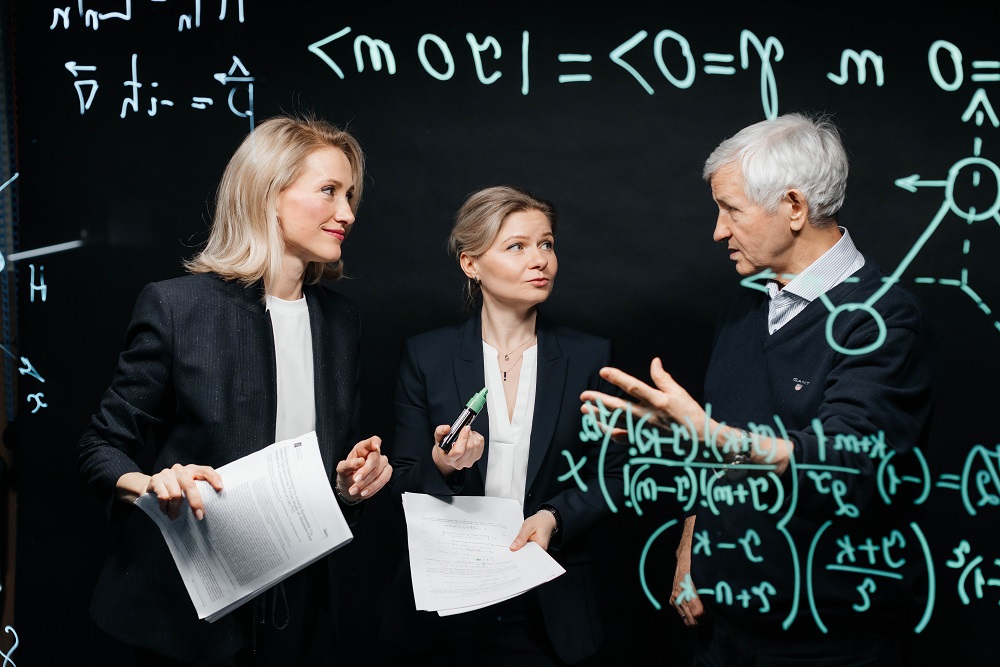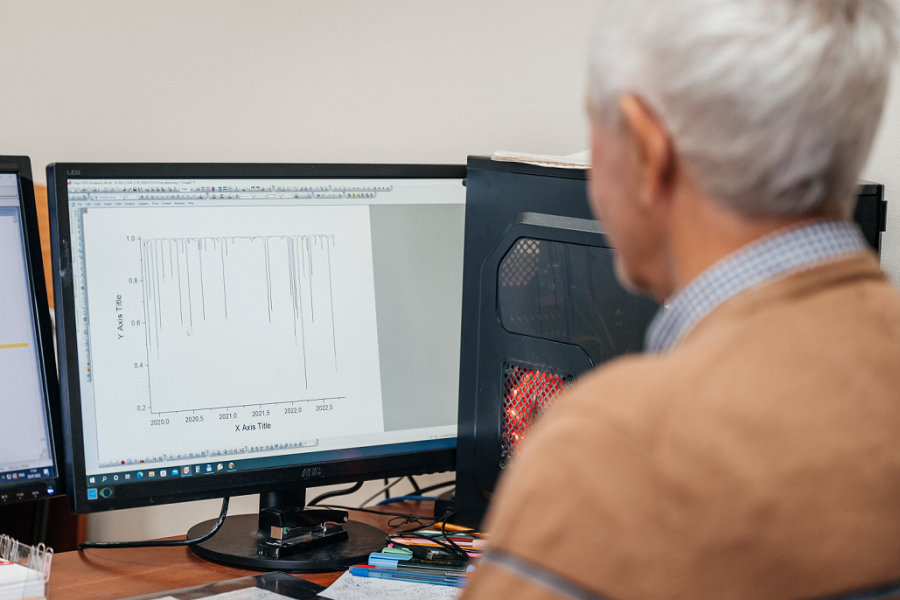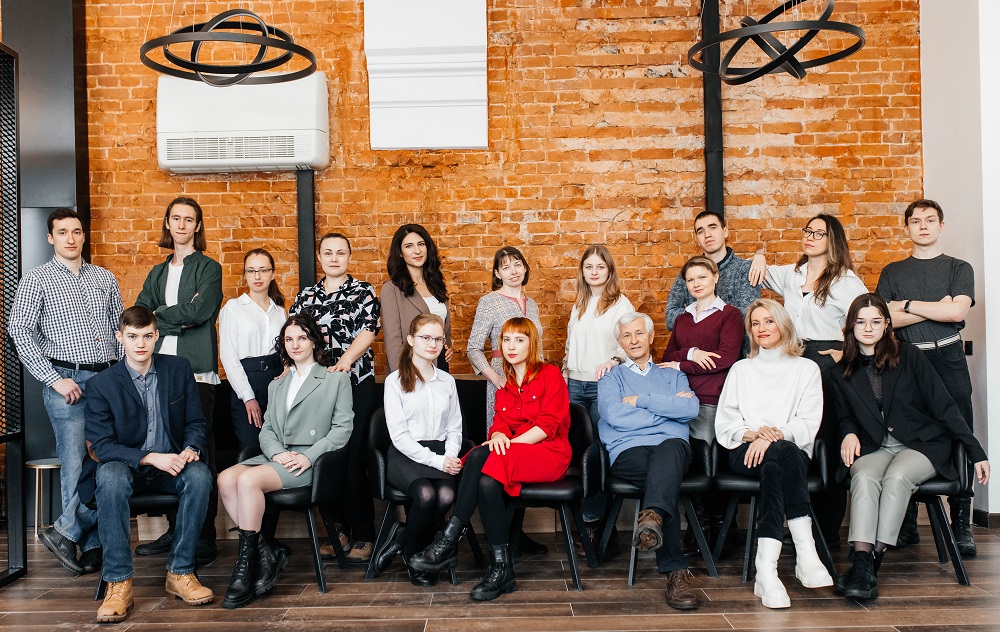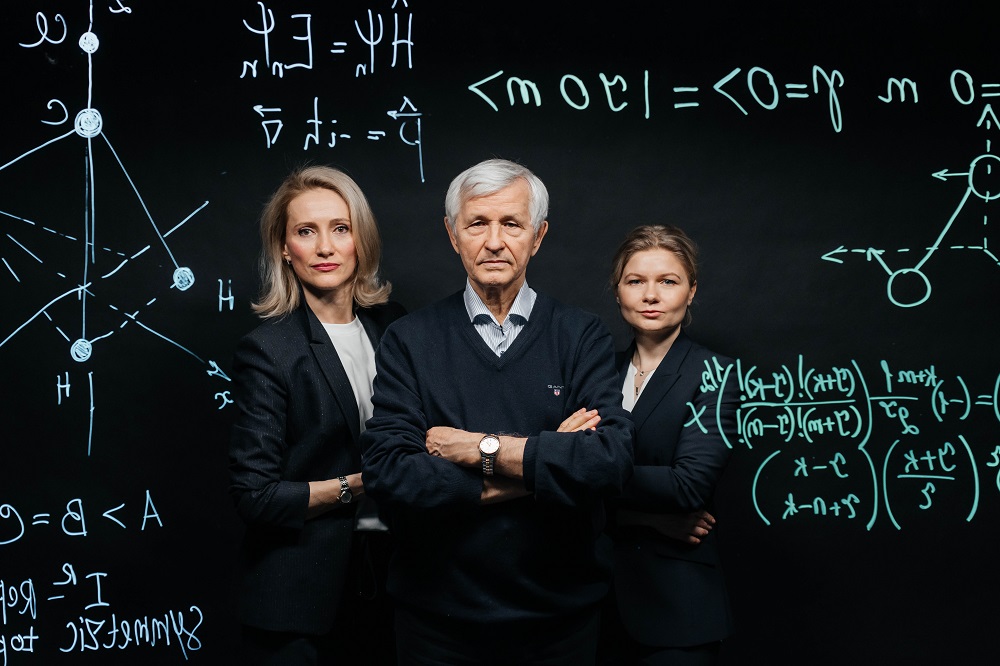Professors of TPU Research School of High-Energy Physics (left to right) Elena Bekhtereva, Oleg Ulenekov and Olga Gromova.
SPECTROSCOPY IN LAYMAN’S TERMS
The team led by Prof. Oleg N. Ulenekov has been working on vibrational-rotational spectroscopy at TPU since 2011. The scientists' area of interest includes research in the submillimeter range, infrared and visible regions. They can explain the essence of it in a few simple bullet points.
"Molecular spectroscopy is a very simple and understandable science even for an average person. We once gave a popular science talk on this topic for a conference in Yerevan. It started like this:
The processes that take place in the micro-world can be studied with the help of the instruments of the ordinary world by means of the "consequences" that the molecules leave behind. These "consequences" are called spectra. TPU scientists develop methods to analyze these spectra and create models for decoding them and obtaining useful physical information about the object.Everyone has a rough idea of what a molecule is. Right? Everything around us is made of molecules. Everything around us depends on how they interact, what happens inside them and around them. And when you understand that, you can unravel the nature of a huge number of phenomena and processes that happen around us. The only question is how? Spectroscopy is the answer to this question
A story about the primacy of science:
What I enjoy most about spectroscopy is the process of learning something new. I'm an adventurous scientist (laughs). I always tell students joining our team that there can't be two firsts in science. Either you are the first or you are not. You either get a result or you just confirm the results of others. In science, every day you do something that no one else has done before.
"I always compare spectroscopy to dactyloscopy. There are millions of people on earth and they all have their own fingerprints, no two are the same. It's the same with spectroscopy: no two molecules have the same spectrum. And if we take this parallel to its logical conclusion, just as with fingerprints, physicists have databases of spectral lines. One of the tasks of scientists all over the world is to create and enrich such databases. With them, any task in astrophysics or planetology, for example, becomes possible in principle. Let's say you want to know what's going on in the atmosphere of Titan. In that case, you take a spectrum from an interplanetary station, send it to scientists, and they analyze it against databases. And in the end, you learn that it rains on Titan too, just not water, but methane and ethylene," adds the scientists.
There are five or six such databases in the world. They are updated by the global scientific community. This requires laboratory research and a long process of data registration and analysis.
"The whole process of obtaining reliable information and data registration takes quite a long time. Therefore, some information that has not yet been added to databases, but we have it (smiles)," admits the researcher.
APPLIED FUNDAMENTAL SCIENCE
The team of scientists is currently working on several major projects. One of them is the study of organochlorine compounds. These are harmful substances that occur during industrial oil production and transportation in oil and gas pipelines. The scientists' ultimate goal is to develop an analyzer that tracks the levels of these compounds. It will be able to extend the life of equipment and save money on repairs. This project is supported by the Priority-2030 program of the Russian Ministry of Education and Science.
"Today, oil and gas companies do not use analyzers for ongoing control of the content of organochlorine compounds in oil, oil products and gas condensate. The creation of such a device could solve several problems at once: extend the life of expensive equipment, save billions on its repair or replacement, and solve environmental threats caused by equipment deterioration. But a good solution to this problem requires us to understand what, where, how and by what methodology to probe, and most importantly - to conduct a series of fundamental studies and experiments to study the substances that need to be monitored," Ulenekov explains.

TPU scientists’ research is regularly supported by the Russian Foundation for Fundamental Research and the Russian Science Foundation. For example, under the RSF grant, the team has now completed research on the isotopologue of chlorine dioxide in non-singlet electronic states. The scientists have developed a mathematical model and software that can predict the properties of the molecule dozens of times more accurately than known results.
The most spectacular and interesting projects
The most spectacular project we did was definitely the project with Volkswagen. It consisted of laboratory and experimental research in the field of astrophysics and astrobiology. We did it together with colleagues from other countries. And it was spectacular because of the budget of 200 thousand euros.
From a scientific point of view, what I liked the most was the study of molecules in non-singlet electronic states. I like solving non-trivial problems. When everything is clear, the work becomes routine, but when you don't know what you will get in the end, it is interesting.
Now the scientists of Tomsk Polytechnic University together with the Institute of Applied Physics of Nizhny Novgorod have applied for a new RSF grant. The research will be devoted to astrophysical problems.
ONE OF
Today the Tomsk team is known far beyond the borders of the country. Its members have more than once become guest lecturers at the best technical universities in France, China, Finland, England, Japan, Germany, Switzerland, Poland, Singapore and other countries.
"I have been involved in spectroscopy for 50 years. During this time, we have managed to assemble a team of unique specialists and great professionals. Every year, new graduates and even undergraduates interested in research in the field of molecular studies join us. In general, I appreciate my colleagues, including graduate students, for their hard work and their genuine interest in what they do. First of all they think about the work itself, and not about the final publication. This is the most important thing," adds Oleg Nikolayevich.
A story about the modesty of one of the world’s best science teams
One day a long time ago, our team was interviewed and asked, "Why is your team so famous - you are known all over the world?" My answer made my colleagues in the department very angry. They said that I was not modest. I then said literally the following: "Some people can do one thing, others can do another. But we can do everything.
Spectroscopy has many different areas. But scientists who work with one type of molecules and know them well, as a rule do not work with other types of molecules because of different approaches and mathematics. And we work with all types of molecules. That’s why my statement is bold but true (smiles).

Despite the fundamental nature of the team's research, the results of their work seem to be quite applied and ubiquitous. "We realize that other researchers can't get anywhere without us," said the head of the team in an interview with the corporate newspaper "Za kadry TPU". So far, nothing has changed.
Other articles about scientific teams of Tomsk Polytechnic University:
Prof. Alexander Pak: on mentors in science, the importance of open doors and teamwork
Prof. Roman Surmenev: on materials and technologies that will change medicine
